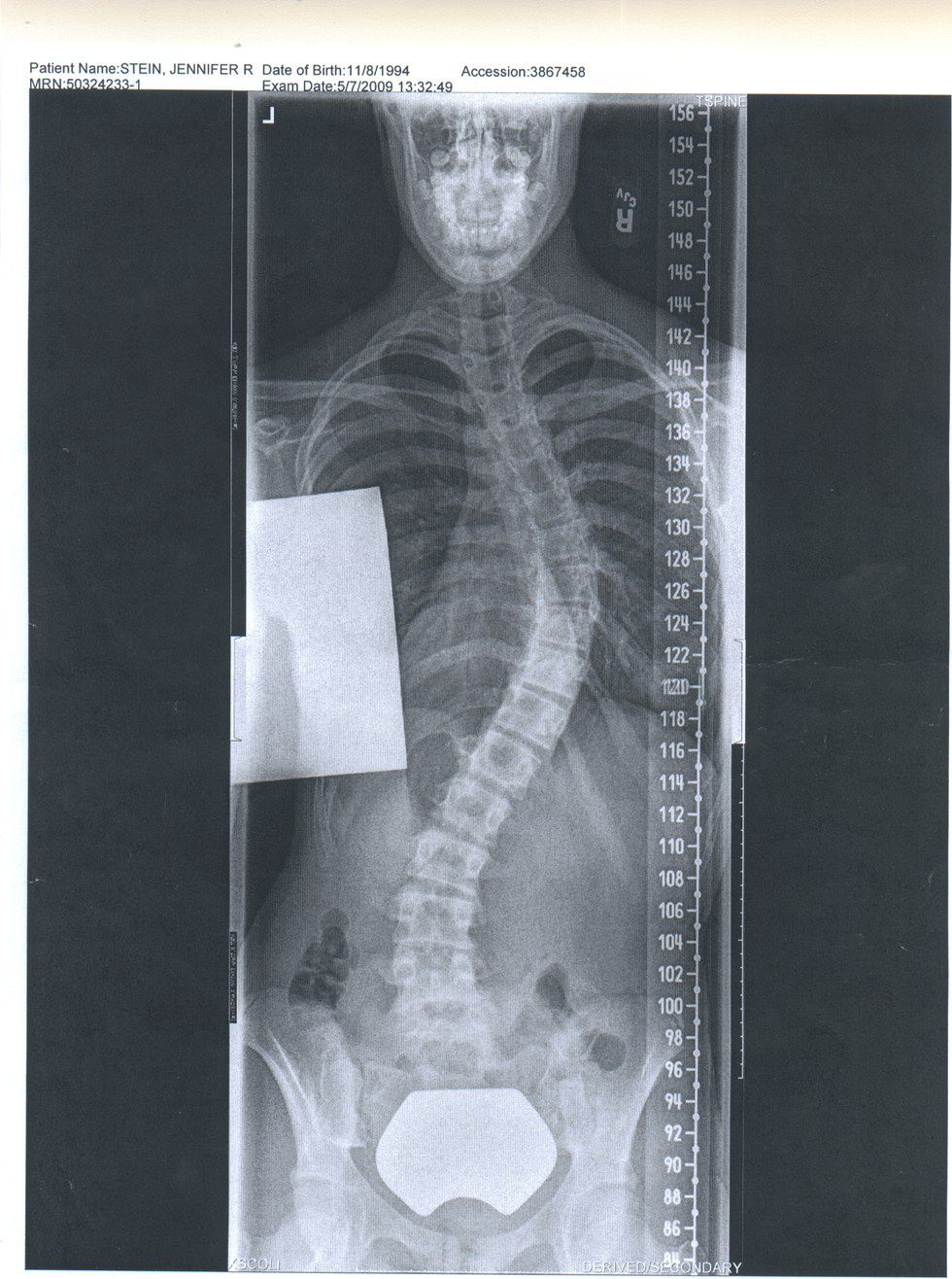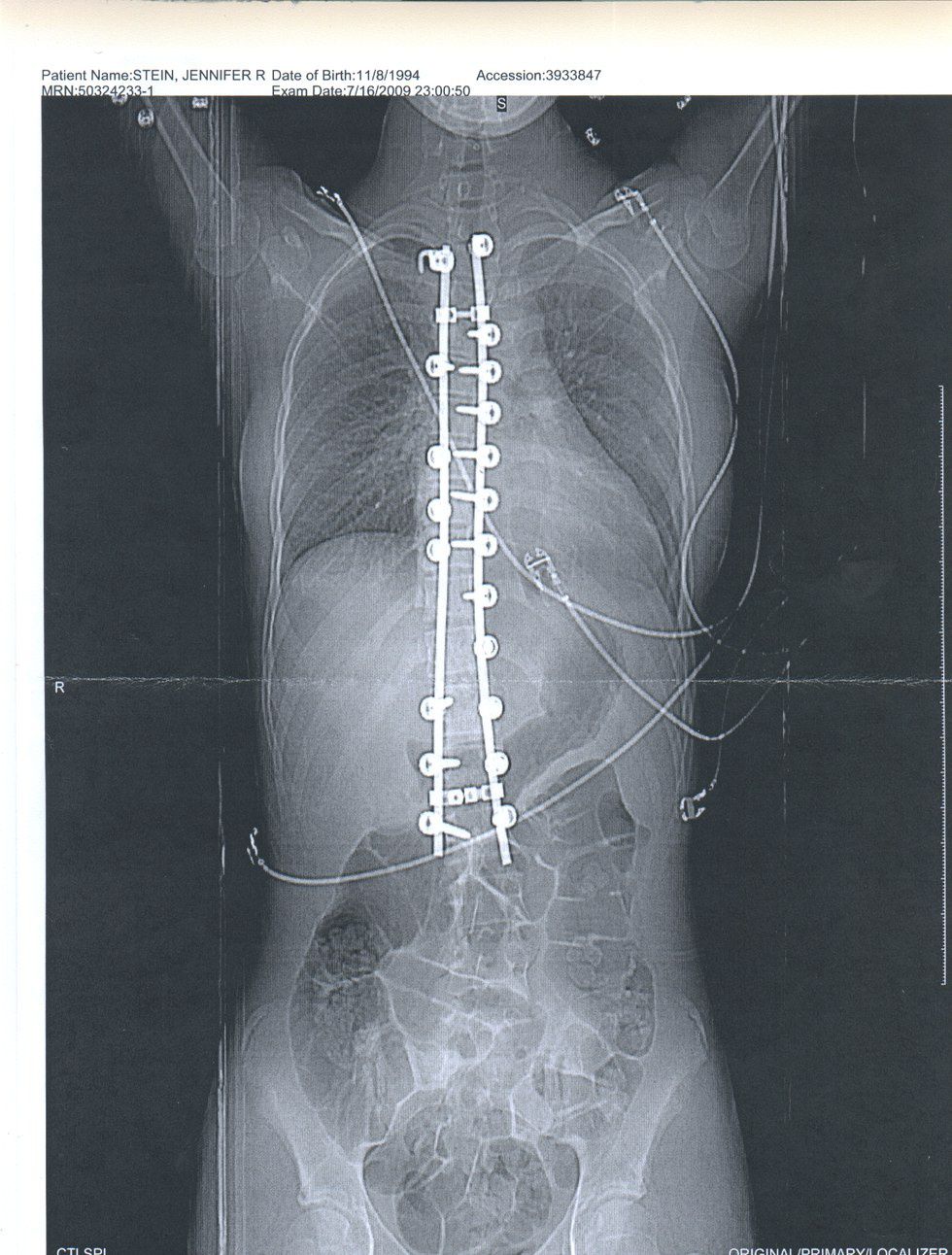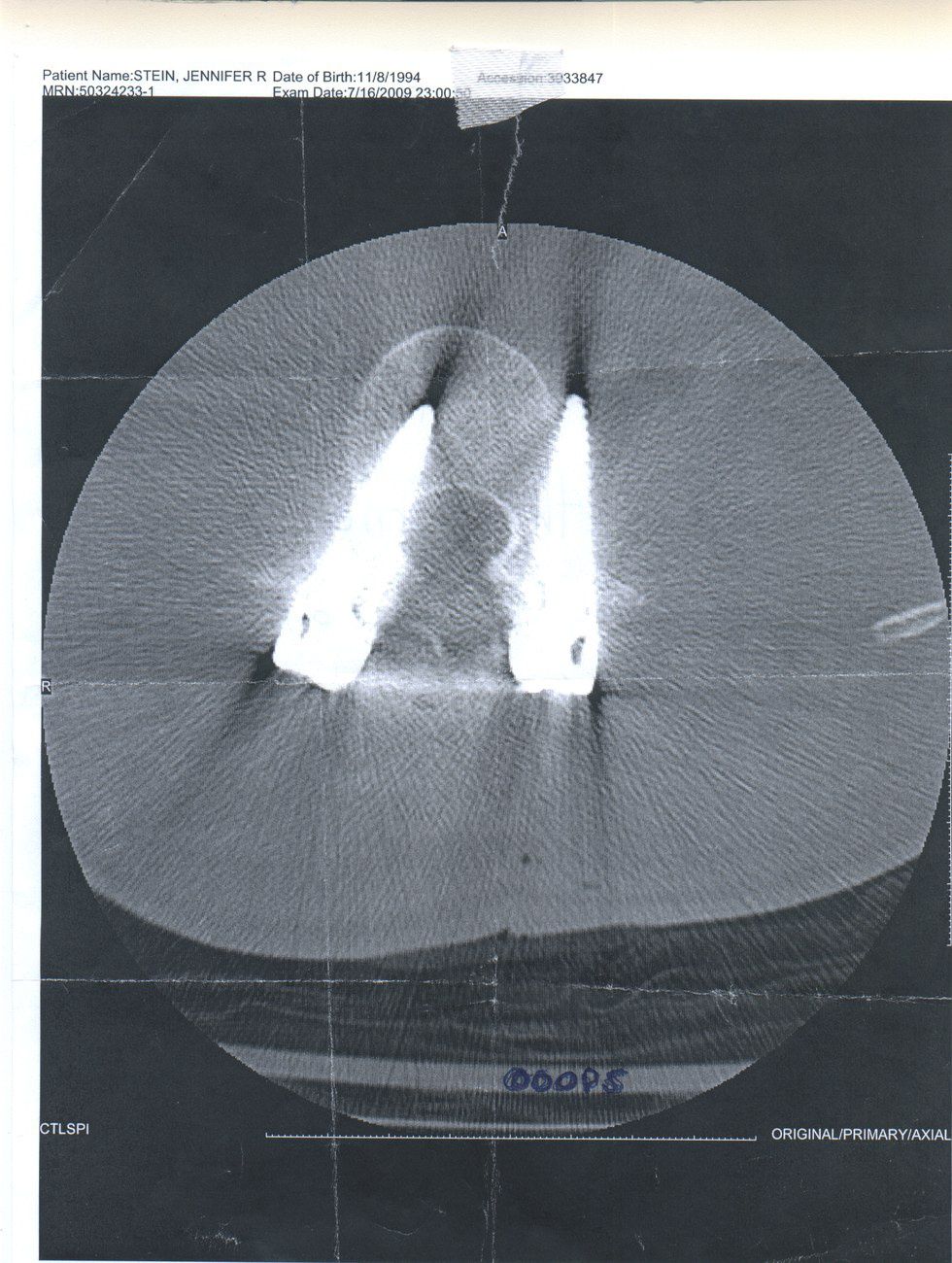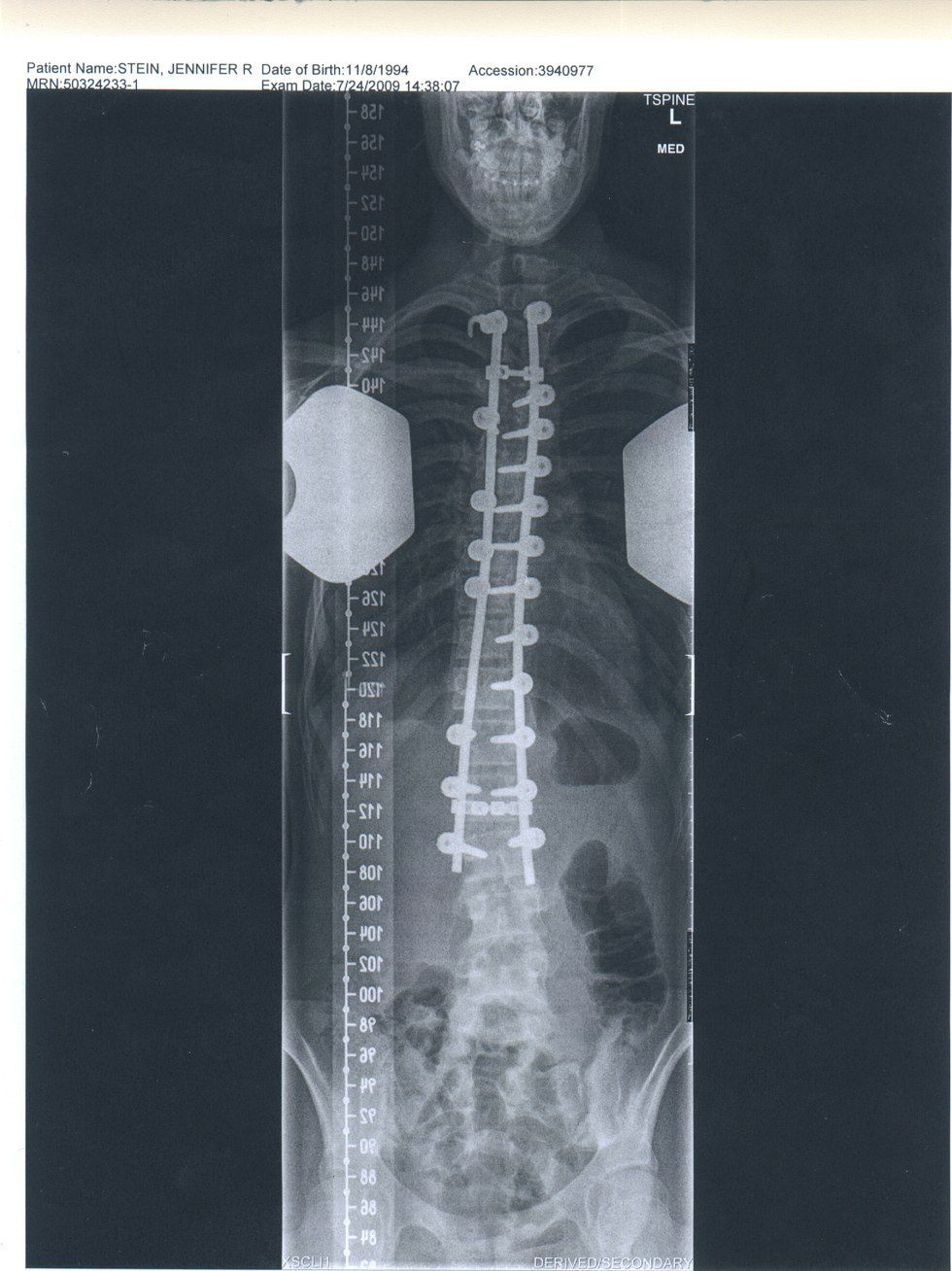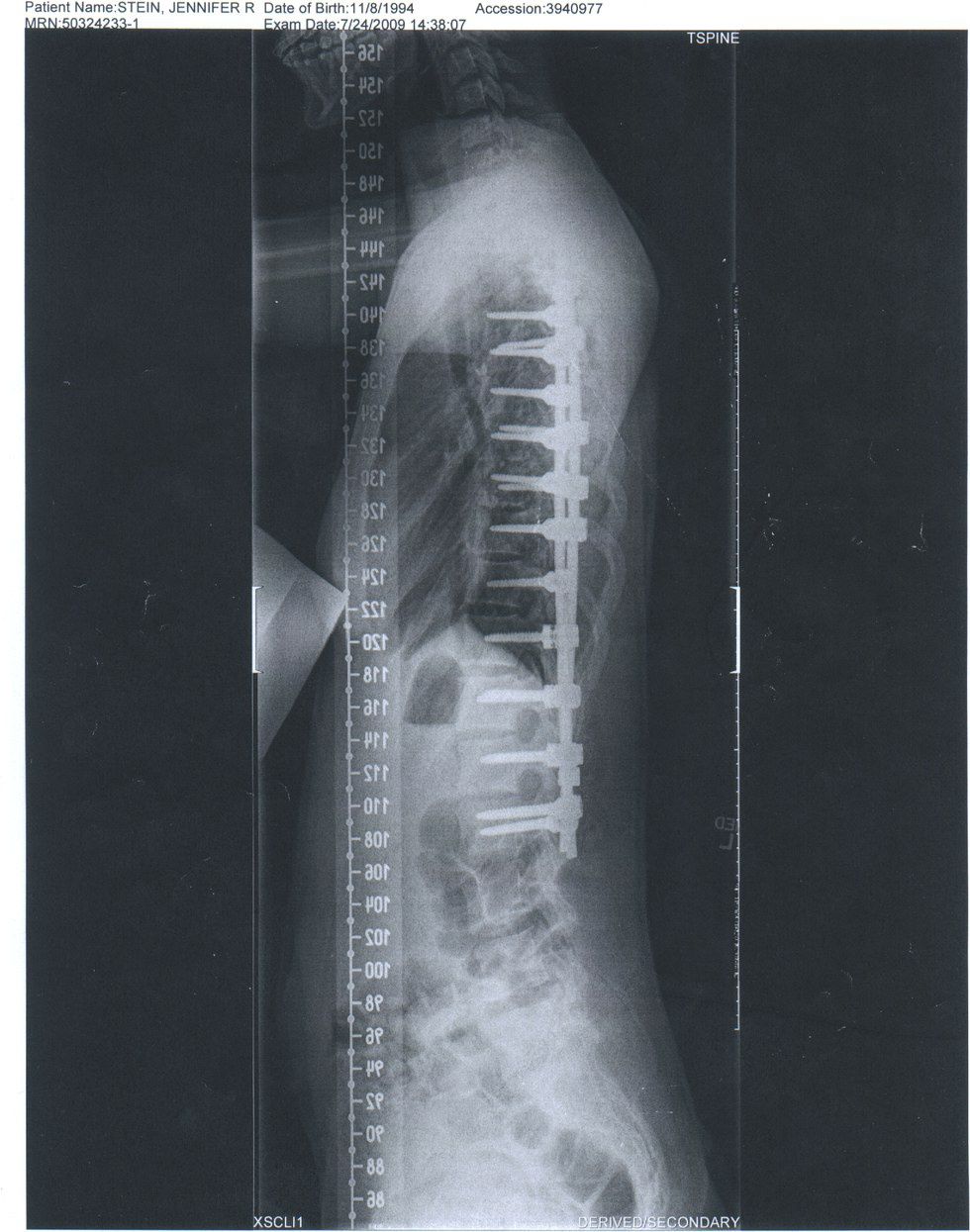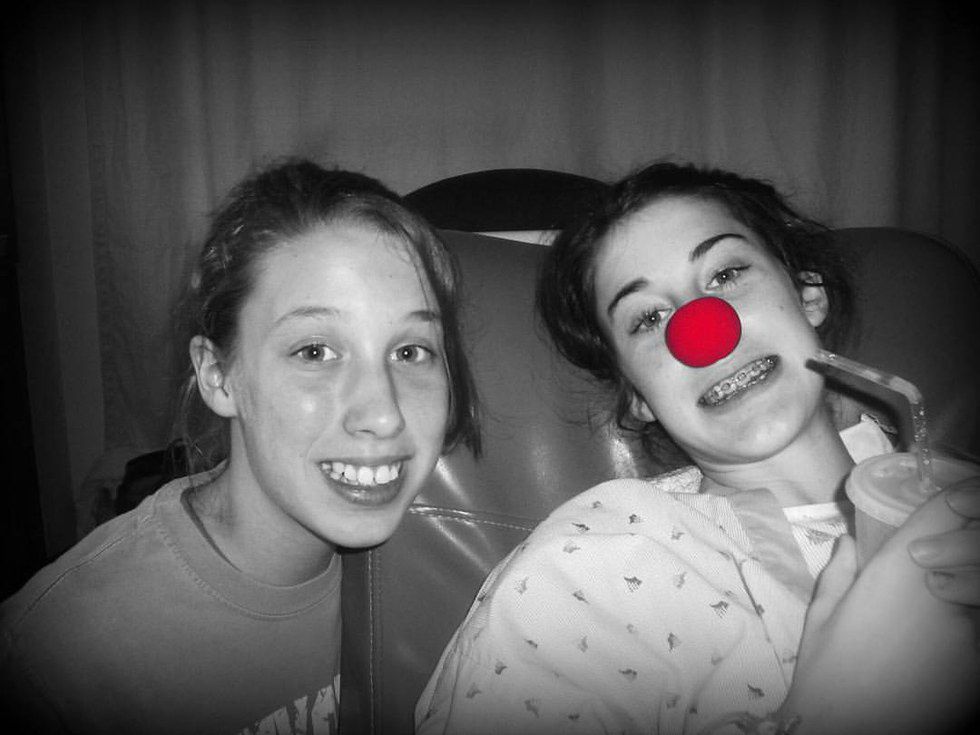Seven years ago, July 15th, I was lying on a hospital gurney, feeling very uncomfortable and cold in those teeny, tiny hospital gowns. It was six o'clock in the morning when my parents and I arrived at the hospital. I tried to stay calm and collected, I tried to not imagine what my body was about to go through. My parents were semi-freaking out, the prep nurse stabbed my arm with an IV needle as if it was a stubborn juice box that she just couldn't get the straw into. The anesthesiologist came in stuck me with an IV, and then everything went very quickly and every thought that I had been repressing finally flooded my brain with panic. This panic didn't last long, as I was whisked down the hall on a gurney, and knocked out for an eight hour long surgery.
Flash back a little further to the beginning of my 8th grade year of school. I was a three sport athlete, and just a general active kid. I was really confused during cross country running season why all of a sudden I was wheezing. I felt a sharp pain in my chest and could barely finish my races. My father told me I was probably just out of shape, which I did not believe considering I had been running around, playing, biking, adventuring, swimming, and more, all summer. It wasn't until I had a band and choir performance that we noticed the true culprit of my breathing problems.
I put on a new, fancy, silk dress and was excited to go perform. I asked my mom how I looked, and she told me that she needed to adjust my dress, it wasn't fitting right. No adjustments seemed to help, and we thought that maybe the seams had been sewn "wonky". Upon inspection, the dress was impeccable, and we realized that my back was what was causing the misshapen look. My right shoulder blade was "winging", it was higher than the left side, and hyperextended out. The muscles in my back were also not straight. I later learned that my ribcage was rotated and impacting my lungs, the real origin of my "out-of-shapeness" and sharp pain in my lungs when running for cross country.
For the time being a threw on a cardigan and called that an easy fix for my dress problem, but my parents immediately made a doctors appointment. After a couple x-rays and a brief examination, I was diagnosed with scoliosis.
Scoliosis is a curvature of the spine, which tend to be prevalent in girls, occurring around puberty. Most normal humans don't have perfectly straight spines, and at least some degree of curve. I've had many people tell me, "Oh I have a cousin/sister/aunt/mom/friend with that!" which is due to it's commonality. Most cases need no treatment, and if a treatment is needed, the type depends on the severity of the curve. The severity is measured by the degree that the curve is. Milder cases can be corrected by wearing a brace, and strengthening the muscles that surround the vertebrae. In extreme cases, corrective surgery can be performed. I was in eighth grade December 2008, and my doctors told me that the only way to fix my curved spine was surgery because I had a 50 degree curve, and I could opt to live with it, or choose when to have the surgery, which could have been a couple years down the road.
The scoliosis was painful, my body didn't function the way it used to. My muscles always ached and my ribs stabbing my lungs. I knew I wanted to have the surgery, and I decided right there that I wanted the surgery as soon as possible so I could play sport by my senior year of high school. The surgery consists of attaching titanium rods to my spine with surgical screws.
It all happened so fast. The pain in the fall, the diagnosis in the winter, and by spring I had my operation physical, I had blood drawn for the dialysis machine I would be hooked up to to keep my blood running during my surgery, and my last x-rays before the surgery. My curvature had increased to 55 degrees. In less than a year I had never heard of scoliosis and then I was having a incredibly risky surgery.
The risks of the surgery were numerous. It is dangerous to be under anesthesia for as long as I was. The surgeons were putting screws into my vertebrae, and it done wrong, could have entered my spinal column and paralyzed me. I could have lost to much blood or not had enough oxygen as my body lay cut open. To put the screw in the surgeons had to sever my muscles and nerves, and after my surgery, one on the nerves (the one that controls the nerves of my inner right thigh) took a long time to regrow. And there were more risks that I choose not to think to hard about.
My surgery went fairly well. Waking up from anesthesia was absolutely terrifying. During parts I don't remember I was thrashing about (not a good thing for a person who has fresh stitches down their entire spine). When I regained consciousness I couldn't see, but I could hear my parents, and roughly judge their shapes next to me. The scary part of it was when I tried to tell my parents, "I can't see," the only words I could produce were "it hurts," which causes my parents to freak out, thinking I was in pain (I was on A LOT of morphine, I couldn't feel anything right then), and when I tried to calm them down, I continued to attempt to say "I can't see," but continued with "it hurts."
My time in the hospital was interesting. There was a lot of not sleeping that occurred, as I was checked on my a nurse every two hours. They needed to make sure I had enough meds, and to make sure I could still feel all of my limbs. The night the day after my surgery, I was whisked away to have a CAT scan, and the news we got back from the doctors was not good. They had put three of the screws in my lower vertebrae not the correct angle. I needed to have a second surgery. So on the 17th of July, I remember they disconnected me from my morphine drip and knocked me out for a second five hour surgery.
[Note: the "ooops" written in by the doctors]
My nurses were very kind. I stayed my whole hospital recovery time in the Dartmouth Medical Hitchcock Center's PICU (Pediatric Intensive Care Unit). Each morning, promptly at 5 am, my second doctor, who was in his last year of clinical, greeted me much to loudly, and far to cheery for the dreadful morning hour (mind you, I had usually finally been about to fall asleep around 3:30). He changed my gauze and bandaging that was over my scar. You know when people use the phrase, "rip it off like a bandaid"? Well imagine the bandaid being tape as long as your back, and that being ripped from your tender skin around your freshly stitched up scar... at 5 am.
I remember that I was in an incredible amount of pain the whole time I was there. I had a button I could click to give me morphine and I could only push the button every two minutes. If I fell asleep, I was not pushing the button, and would wake up in so much pain that I felt like I was going to throw up (I hadn't eaten in days, I definitely wouldn't have anyway). Eventually my mom would make sure to push the button for me in whatever moments I did manage to shut my eyes.
I could barely move my body. I lay in a hospital bed, propped up with pillows on either side of my still bleeding operation wound. Every inch of me hurt. My mom was there to help me do everything. I couldn't imagine walking again. I couldn't imagine running, throwing a softball. I cried because I didn't think I'd ever get skinned knees from diving after a basketball during a game. I couldn't imagine being independent again. It was terrifying.
My mom was my saving grace the whole time. She still talks about it. It is a special bond between us. She was there for me every night. Barely left my side, and for that I am eternally grateful. I was never scared, but that is because I knew that she had my back (metaphorically and literally speaking). She kept me well stalked on ginger ale, washed my face and hair, she even made a midnight trek for a cookie which was the only item I actually had any desire to eat during my time in the PICU. My mom let me watch hours of animal planet and would for some reason keep me smiling and laughing at midnight. My mom made sure I had enough meds and the topmost care (which was not something she had in her own hospital stay).
Eventually my nurses (Sidenote: Nurses are the most lovely, hardworking, amazing and caring beings on the planet), forced me out of bed much to my anguish, and in hindsight my benefit to practice using a walker, to move on my own. I had to practice trying to step up a stair, and then back down. It seems simply, but it was so hard. Your back in linked to the majority of your body movement, it was hard to adjust.
Within, 8-10 days (I can't really remember how long it really was), I got to go home. My mom drove very slowly and tried to miss as many of the bumps that she could. I slept on an air mattress, propped up on pillows in the living room. My mom and my sister would spend the night with me and help me with everything. I love them very much, ad cherish my memories of our times overcoming this. That was not the end of the effect of my scoliosis journey, but that was about the rest of my summer that year.
I've come so far and now, I am strong. I am physically stronger than I was, but more importantly, I have a great stoicism, a high pain tolerance, and abundant empathy. Yeah, it sucked to have scoliosis, but I am thankful for all the help I received and for how the experience made me who I am today.




